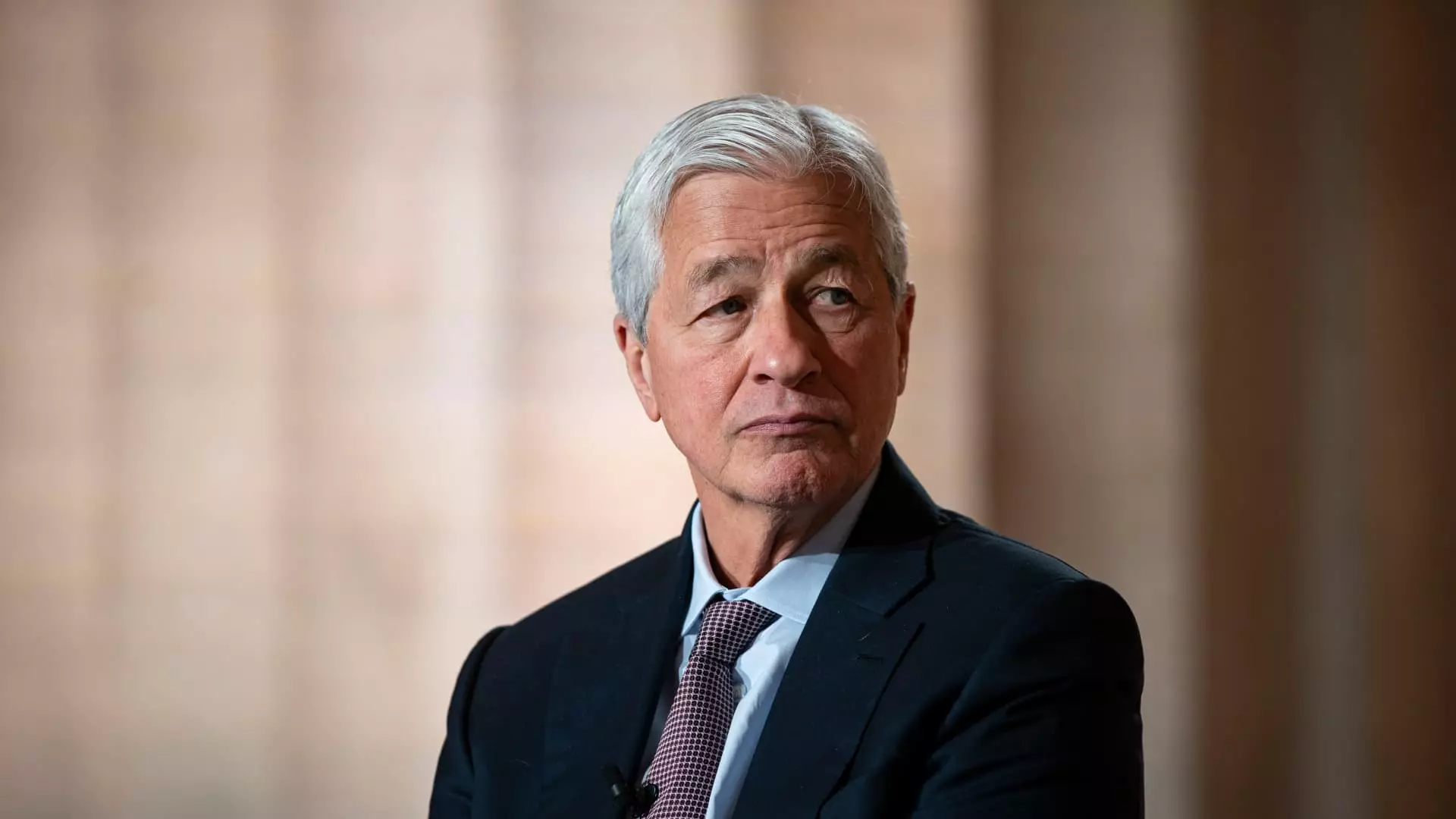In a world where political maneuvering often dictates economic tides, Jamie Dimon’s recent commentary about the U.S. economy plunging headlong into recession paints a stark picture. The CEO of JPMorgan Chase is no stranger to the nuances of market dynamics and financial precarity, yet his bleak assessment comes amid surging tensions in the ongoing trade war with China. Dimon’s observations highlight a critical turning point—one rooted in a troubling blend of tariffs and market reactions that amplify consumer anxiety and diminish overall confidence.
Dimon’s assertion that the prospect of a recession is not just possible but likely reveals a profound understanding of market psychology. When investors see a drastic drop, like a 2000-point decline in the Dow, it sends ripples of fear and uncertainty across financial landscapes. Such downturns don’t merely represent a drop in numbers; they translate into tangible repercussions for everyday people—401(k) accounts dwindle, pension funds tighten, and spending stagnates. This cycle of fear is dangerously contagious, generating a self-fulfilling prophecy wherein consumers, gripped by trepidation, curtail their spending.
The Trade War’s Fallout
With each retaliatory tariff, the tension escalates between the U.S. and China, leaving markets to grapple with volatility and unpredictability. Recent developments, such as China’s decision to impose a staggering 84% tariff on U.S. goods, only exacerbate these fears. It’s a tit-for-tat strategy emblematic of a larger geopolitical chess game—one that threatens both economic stability and the livelihoods of countless Americans. The stark reality is unsettling: the ripple effects reach every citizen, dragging them into a maelstrom where economic forecasts grow dimmer by the day.
Markets respond instinctively to this uncertainty, as evidenced by the surges in bond yields and the plummeting of stock futures. The fears rooted in these behaviors often stem from tangible threats: the potential for job losses, increasing consumer prices, and dwindling economic growth. Dimon’s caution that a contraction in the U.S. GDP could indeed occur underscores a pivotal moment that could steer the economy into a recessionary tailspin. A contraction isn’t merely an economic term; it signifies job losses, business closures, and reduced public services—ultimately leading to an erosion of the American dream for many.
Time for Negotiation: Roadblocks and Solutions
Historically, Dimon has been known as a proponent of tariffs, suggesting that they could bolster national security despite their economic costs. Yet, as the situation escalates, his more recent calls for negotiation underscore a critical pivot. He urges for calm and constructive dialogue to address trade discrepancies, recognizing that continued inaction could deepen the fissures already plaguing the economy. But achieving diplomatic agreements amidst rising tensions requires deftness and a willingness to prioritize mutual benefits over nationalist posturing.
The current administration’s approach to trade has sparked fierce debates about protectionism versus free trade; many liberal centrists, like Dimon, advocate for a balanced perspective. Rather than entrenching positions with punitive tariffs, the U.S. should strive for collaborative frameworks that facilitate economic growth without jeopardizing long-standing international partnerships. The irony lies in a potential unity on both sides of the aisle, recognizing that while tariffs might serve short-term interests, they can jeopardize long-term prosperity if not handled astutely.
The Role of Leadership in Economic Resilience
As we navigate this tumultuous landscape, effective leadership becomes paramount. Dimon’s insistence on confirming qualified individuals, such as Michelle Bowman for the Federal Reserve, speaks volumes about the urgent need for knowledgeable and proactive governance in the banking and financial sectors. The right leadership can inspire confidence, ease market fears, and promote stability—all crucial during times of economic distress.
In a climate riddled with uncertainty, it is essential for leaders—both in government and the private sector—to chart a course that steers the economy toward recovery rather than recession. Engaging in productive dialogues, understanding the intricacies of international trade, and empathizing with the struggles of everyday Americans must become not just goals, but imperatives. As Dimon aptly points out, it’s imperative to “take a deep breath” and navigate these turbulent waters with an eye toward resolution and recovery, rather than allowing the shadows of recession to encroach upon the lives of citizens.


Leave a Reply